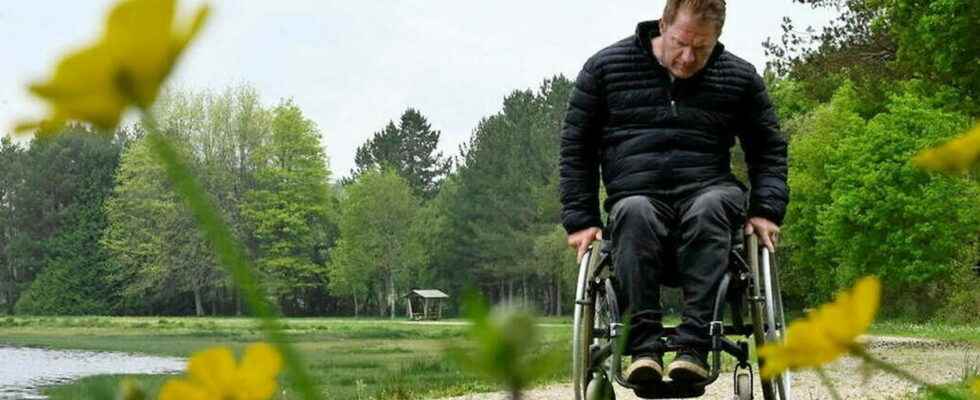Swiss scientists have developed light-emitting diodes that stimulate the spinal cord in the event of injury, notes TF1 Info.
By ThePoint.fr
© Thierry Creux / MAXPPP / PHOTOPQR/WEST FRANCE/MAXPPP
Published on
The article link has been copied
Copy article link
VS’is a discovery that promises to be major for people paralyzed following a spinal cord injury, as noted by our colleagues from TF1 Info. Researchers from the NeuroRestore research center, based in Lausanne, Switzerland, have identified which type of neurons are activated by the spinal cord to walk. From there, they succeeded in reproducing the electrical stimulation induced by these neurons on the spinal cord, via the implantation of electrodes. Result: they allowed nine paralyzed people to stand up and even walk again.
Even better. The scientists claim, in their study published in the journal Nature on November 9, “that at the end of the rehabilitation process the improvement in the motor skills of the patients persists even in the absence of electrical stimulation”. They explain this by the fact that our nervous system would be able to reorganize itself to call upon neurons that are usually little used – which they baptized Vsx2 – but which prove to be essential for recovery after an injury.
READ ALSOElectrodes in the brain to cure depression
This discovery is the result of a long work by this team attached to the Federal Polytechnic School of Lausanne (EPFL). For the first time, the NeuroRestore teams have “succeeded in visualizing the activity of the human spinal cord during walking”, then in “observing, neuron by neuron, the evolution of the healing process” thereof. And their hopes for the future are high: “This opens up even more targeted therapeutic opportunities for us: we aim to manipulate these neurons to regenerate spinal cord injuries,” they explain in a press release.
Science and tech newsletter
Great interviews, major discoveries, innovations and behind the scenes… Every Saturday, dive into science and tech news.
The editorial staff of Le Point advises you
